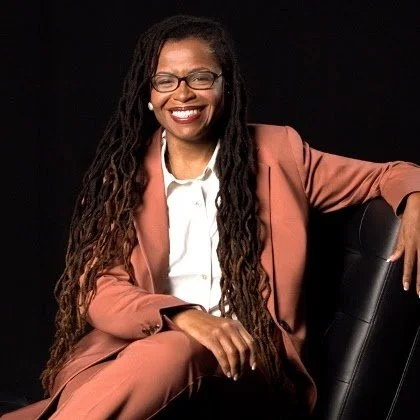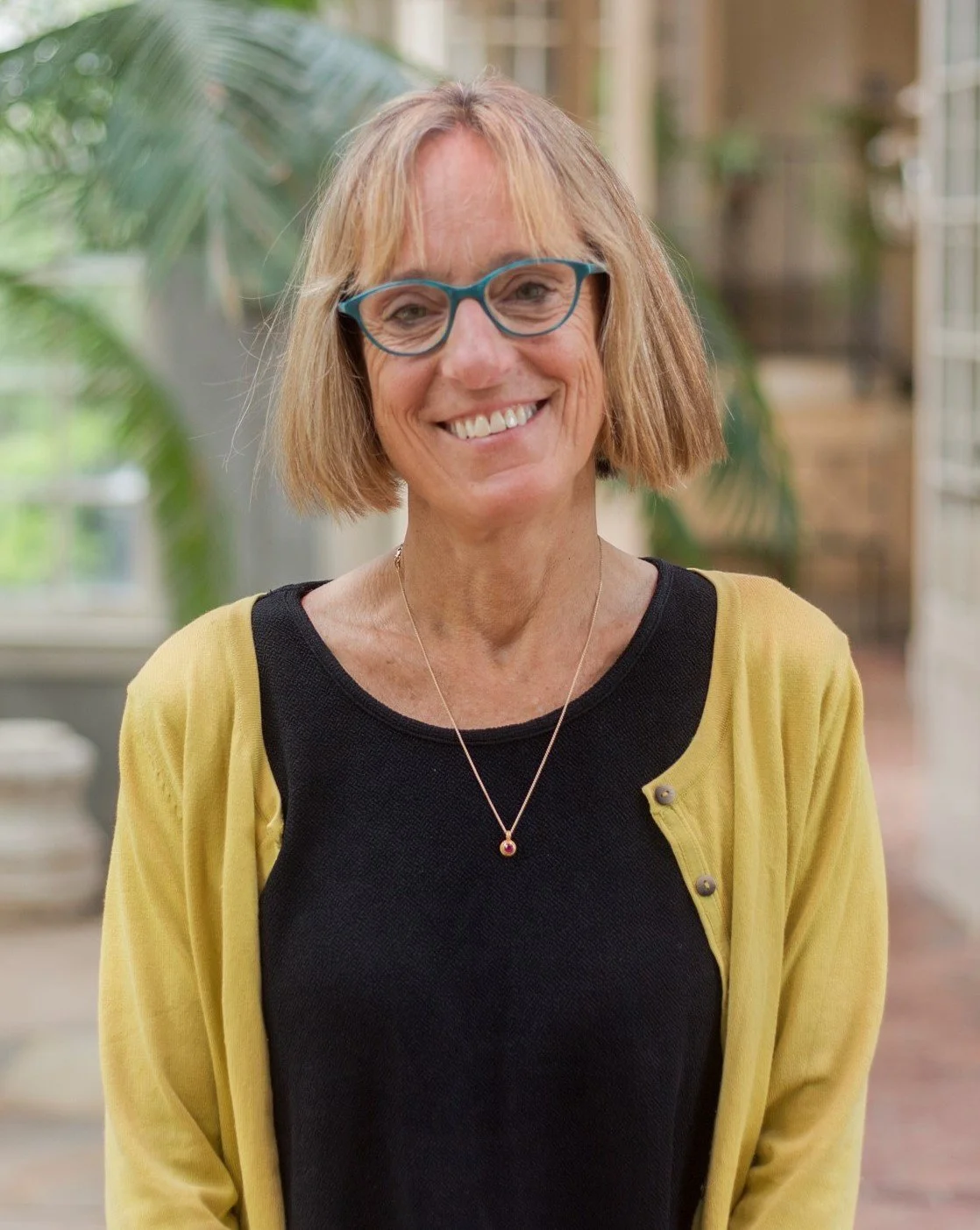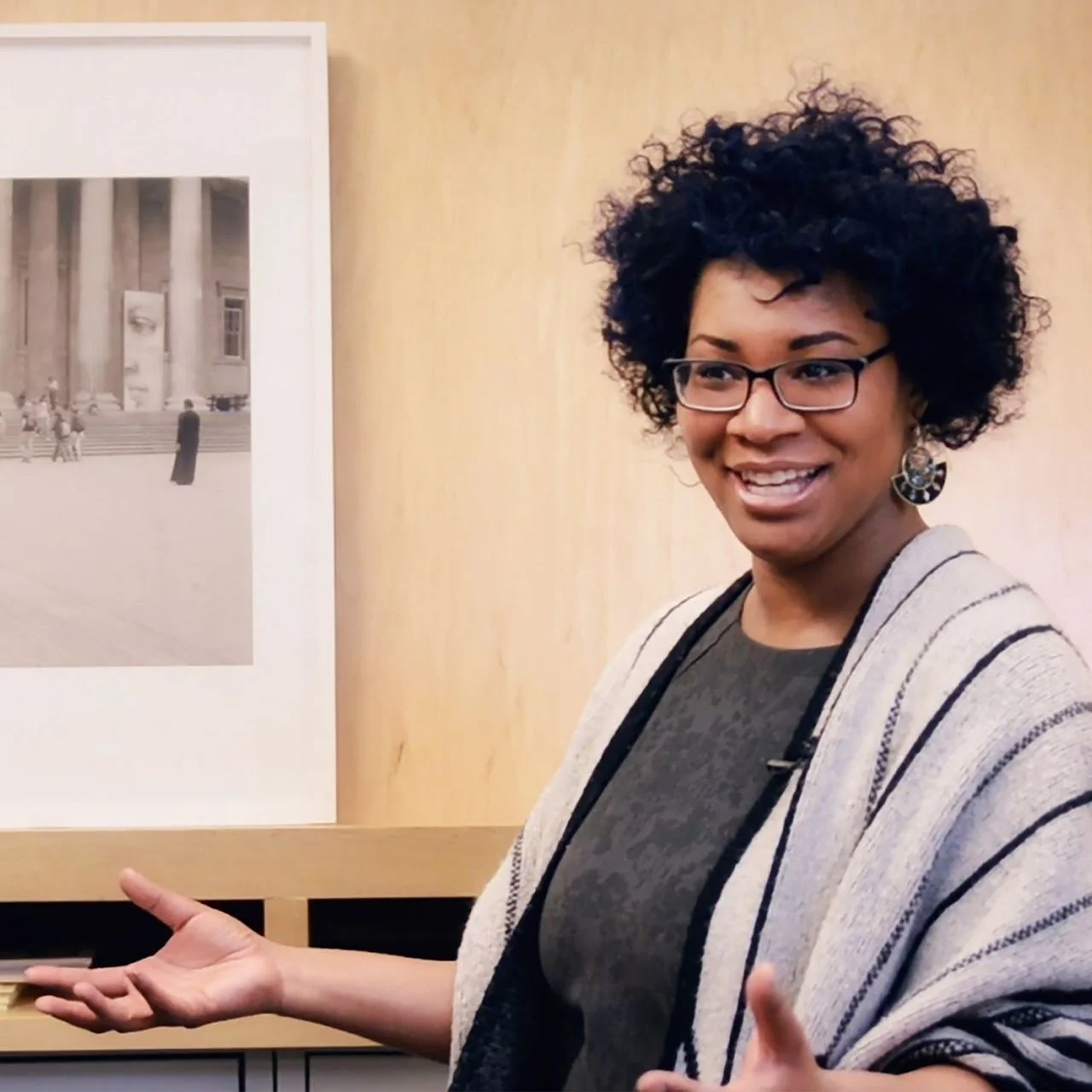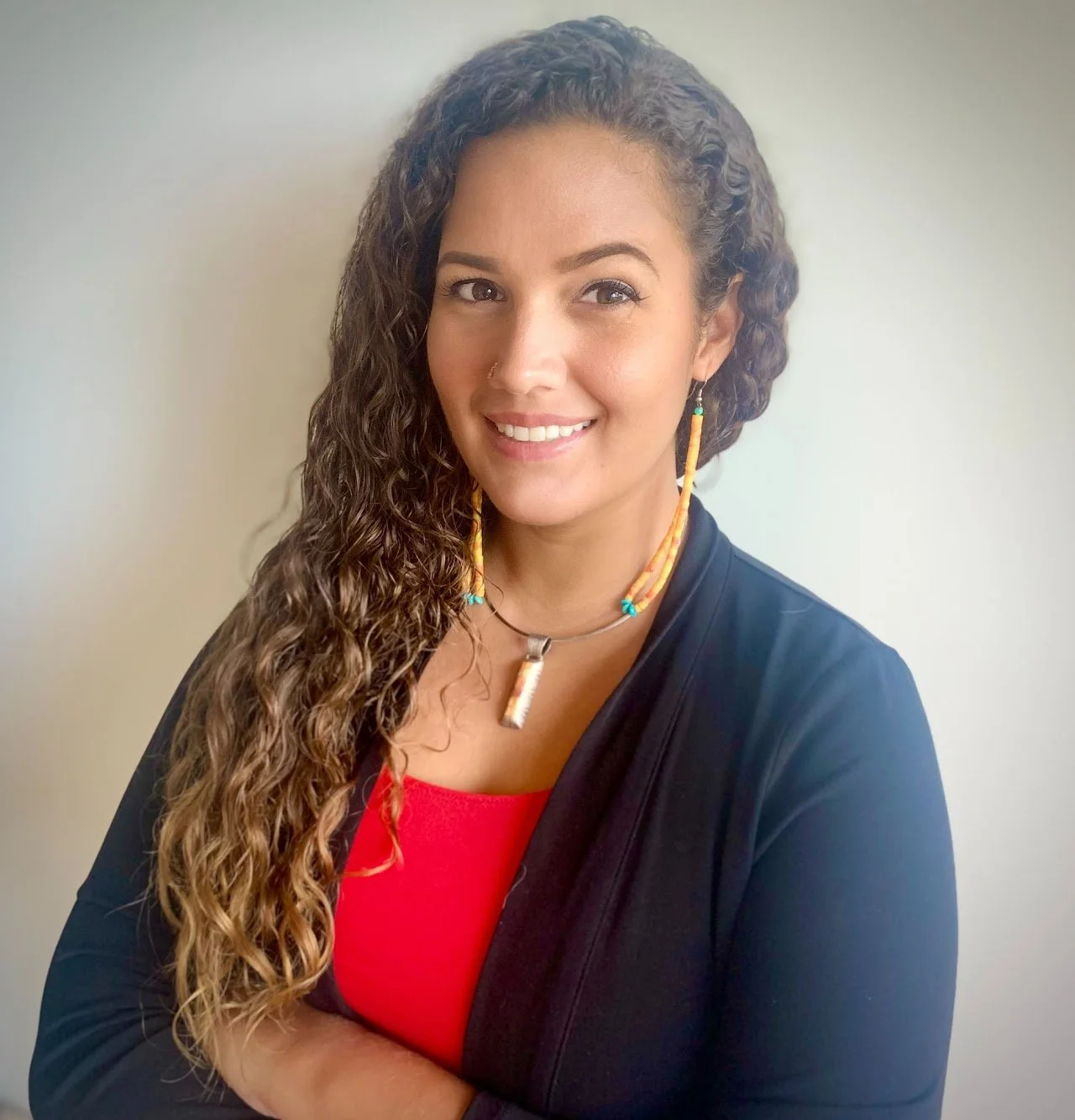Project Directors
-
Assistant Professor of Urban Planning, Texas A&M University
Dr. Roberts' 14 years of experience in public administration and community development inform her efforts to move disappearing Black communities from the margin to the center of public discourse through applied research that shapes policy and practice. She teaches critical landscape studies and history to design and planning students.
She is the founder of The Texas Freedom Colonies Project, a research & social justice initiative that leverages its Atlas (digital humanities platform) to make visible Black placemaking heritage and disparate ecological and development impacts on Black communities. The Journal of Planning History; Buildings and Landscapes, and the Journal of Community Archaeology and Heritage have published her work. She is writing a book about Black historic preservation practice (The University of Texas Press).
-
Program Director for Garden & Landscape Studies Dumbarton Oaks Research Library & Collection, Harvard University
Dr. Way teaches and researches history, theory, and design in the College of Built Environments, University of Washington (currently on leave). She was awarded the Rome Prize in Landscape Architecture at the American Academy in Rome in 2016.
Her publications focus on questions of history and gender in shaping the landscape including her book Unbounded Practices: Women, Landscape Architecture, and Early Twentieth Century Design (UVA Press, 2009/ 2013 (paperback), From Modern Space to Urban Ecological Design: the Landscape Architecture of Richard Haag (UW Press 2015), and the edited volume River Cities/ City Rivers (Harvard Press 2018). A co-edited volume with Eric Avila (UCLA), Urban Landscapes : Segregation and Resistance is forthcoming. Dr. Way’s scholarship draws from the humanities to challenge the canon of landscape and design history to engage with the questions of race, gender, and class.
Visiting Scholars
-
Chadwick Allen (Chickasaw ancestry) is Professor of English, Adjunct Professor of American Indian Studies, and a founding Co-director of the Center for American Indian and Indigenous Studies (CAIIS) at the University of Washington, where he also serves as the Associate Vice Provost for Faculty Advancement.
His scholarship engages contemporary Indigenous literatures, other expressive arts, activism, and built environments, with an emphasis on Indigenous aesthetics and technologies. Author of the books Blood Narrative: Indigenous Identity in American Indian and Maori Literary and Activist Texts (Duke UP, 2002), Trans-Indigenous: Methodologies for Global Native Literary Studies (U of Minnesota P, 2012), and Earthworks Rising: Mound Building in Native Literature and Arts (U of Minnesota P, 2022), he is also co-editor, with Beth Piatote, of The Society of American Indians and Its Legacies (a special combined issue of the journals Studies in American Indian Literatures and American Indian Quarterly, 2013).
He served as editor for Studies in American Indian Literatures from 2012 to 2017, and he served as the 2013-2014 President of the Native American and Indigenous Studies Association (NAISA).
-
Niya Bates is a graduate student in the History Department and Department of African American Studies at Princeton University. Her research interests include U.S. slavery, Reconstruction, rural Black communities, and Black environmentalism. For the past five years, Bates has worked in public history preserving rural African American community history in Central, VA. In that time, she also served as the director of African American history and the Getting Word African American Oral History Project at Monticello. Her work has been featured in The New York Times, The Washington Post, The Guardian, CBS, The Today Show, NBC, PBS News Hour, ESPN The Undefeated, and Black Perspectives. Bates has been a guest on several podcasts and streaming platforms, including Oprah's Book Club, Monty Don's American Gardens, NPR's All Things Considered, Sporkful with Dan Pashman, and Following Harriet.
She earned a B.A. in African and African American Studies and an M.A. in Architectural History with a certificate in Historic Preservation from the University of Virginia. Niya was born and raised in Central Virginia and is a descendant of several families who were enslaved in that area.
-
Dr. Angela Pulley Hudson is Professor of History at Texas A&M University. Her primary areas of study include the Native South, histories of place and place-making, the cultural representation of Indigenous peoples, and race and ethnicity in 19th-century United States history. She is the author of Creek Paths and Federal Roads: Indians, Settlers, and Slaves and the Making of the American South (2010) and Real Native Genius: How an Ex-Slave and a White Mormon became Famous Indians (2015).
Her current book project explores the history of western American Indians in the American South and their impact on and interactions with Native southerners. Dr. Hudson has held fellowships from the Newberry Library, the American Antiquarian Society, the American Philosophical Society, the Beinecke Rare Book & Manuscript Library, and the Massachusetts Historical Society, among others.
Her articles have appeared in such venues as the Journal of Social History, the Journal of Mormon History, Southern Cultures, and the Journal of the Civil War Era. She is the senior editor of Native American history for the Oxford Research Encyclopedia of American History and co-edits the “Indians and Southern History” book series for the University of Alabama Press, with Andrew Frank and Kristofer Ray. At Texas A&M, she is the faculty advisor for the Native American and Indigenous Student Organization and the convener of the Indigenous Studies Working Group.
-
Brandi T. Summers, PhD is assistant professor of Geography and Global Metropolitan Studies, and is the co-founder and co-director of the Berkeley Lab for Speculative Urbanisms at the University of California, Berkeley. Her research examines the relationship between and function of race, space, urban infrastructure, and architecture. Her book, Black in Place: The Spatial Aesthetics of Race in a Post-Chocolate City (UNC Press, 2019), explores how aesthetics and race converge to map blackness in Washington, D.C. and the way that competing notions of blackness structure economic relations and develop land in the gentrifying city. Her current research looks at how uses of space and placemaking practices inform productions of knowledge and power in Oakland, California.
Dr. Summers has published several articles and essays about race, power, aesthetics, and urbanization that appear in both scholarly and popular publications, including New York Times, The Boston Globe, International Journal of Urban and Regional Research (IJURR), and Places Journal. Dr. Summers is a member of the Editorial Collectives at City and ACME, and is on the editorial boards of Urban Geography, cultural geographies, Environment and Planning F, AAG Review of Books, and City & Community.
-
Amber Wiley is an Assistant Professor of Art History at Rutgers University. Her research interests center on the social aspects of design and how it affects urban communities - architecture as a literal and figural structure of power. She focuses on the ways local and national bodies have made the claim for the dominating narrative and collective memory of cities and examines how preservation and public history contribute to the creation and maintenance of the identity and sense of place of a city. Her publications cover African American cultural heritage, urbanism in New Orleans, school design, urban renewal, and preservation. She is a Dumbarton Oaks Mellon Fellow in Urban Landscape Studies, investigating the preservation work of the Afro-American Bicentennial Corporation.
Amber was Co-Principal Investigator of the successful National Historic Landmark Nomination Update for the Carter G. Woodson Home National Historic Site. She gave expert testimony for the highly contested Barry Farm historic landmark designation in Washington, DC. She currently serves National Heritage Sites Research Committee of the Association for the Study of African American Life and History, and had previously served on the National Park System Advisory Board Landmarks Committee, and the boards of the Vernacular Architecture Forum, Latrobe Chapter of the Society of Architectural Historians, and the Yale Black Alumni Association.
Amber received her Ph.D. in American Studies from George Washington University. She also holds a Master's in Architectural History and Certificate in Historic Preservation from the University of Virginia School of Architecture, and a B.A. in Architecture from Yale University.
-
Michelle Joan Wilkinson, Ph.D. is a curator at the Smithsonian Institution National Museum of African American History and Culture (NMAAHC), where is working to expand the museum’s collections in architecture and design. In 2018, she served as lead organizer for the museum’s three-day symposium, “Shifting the Landscape: Black Architects and Planners, 1968 to Now.” In 2019-2020, Wilkinson was a Loeb Fellow at Harvard Graduate School of Design.
Prior to her role at NMAAHC, Wilkinson was Director of Collections and Exhibitions at the Reginald F. Lewis Museum of Maryland African American History & Culture. She has also worked at the National Gallery of Art, the Smithsonian American Art Museum, and the Studio Museum in Harlem. As a fellow of the Center for Curatorial Leadership in 2012, Wilkinson completed a short-term residency at the Design Museum in London. Her ongoing research project, “V is for Veranda,” about architectural heritage in the Anglophone Caribbean, has been presented to international audiences in Suriname, England, India, and the United States. Wilkinson’s most recent work explores issues of representation in architectural renderings.
She holds BA from Bryn Mawr College and a PhD from Emory University.
-
Rebecca Hankins is the Wendler Endowed Professor and certified archivist/librarian at Texas A&M University. United States President Barack Obama (2008-2016) appointed Hankins to the National Historical Publications and Records Commission (NHPRC), where she served from 2016-2020. She is an affiliated faculty and liaison in the Africana Studies, Women’s & Gender Studies, and Religious Studies programs.
She teaches courses on the use of primary sources in research, research methodology, memory, myth making, and identity. Her research centers on diversity as it intersects within the African Diaspora, gender, race and ethnicity, and the applied use of popular culture as a pedagogical method that offers new approaches to the study of Islam. She has published widely in journals and book chapters and presented all over the world.
Professor Hankins was elected as an SAA Distinguished Fellow in 2016, the highest honor in the archival profession. In 2016 she co-edited a book with Miguel Juarez titled “Where Are All the Librarians of Color: The Experiences of People of Color in Academia." Her most recent work is titled "Reel Bad African Americans Muslims” published in Muslim American Hyphenations: Muslim Writers, Artists, and Performers in America, edited by Dr. Mahwash Shoaib, Roman & Littlefield, Lexington Books 2021.
-
Paul Chaat Smith is a Comanche author, essayist, and curator. His work explores the contemporary landscape of American Indian art and politics.
With Robert Warrior, he is the author of Like a Hurricane: the Indian Movement from Alcatraz to Wounded Knee (New Press, 1996), a standard text in Native studies and American history courses. His second book, Everything You Know about Indians Is Wrong, was published in 2009 by the University of Minnesota Press.
Smith joined the Smithsonian’s National Museum of the American Indian in 2001, where he serves as Curator. His projects include performance artist James Luna’s Emendatio at the 2005 Venice Biennial, Fritz Scholder: Indian/Not Indian (2008), and Brian Jungen: Strange Comfort (2009).
Appointed Critic in Residence three times in galleries in the U.S. and Canada, Smith’s exhibitions and essays have explored the work of Richard Ray Whitman, Baco Ohama, Faye HeavyShield, Shelley Niro, Erica Lord, Maggie Michael and Kent Monkman. He has lectured at the National Gallery of Art, the Whitney Museum of American Art, and the Getty Center for the History of Art and the Humanities in Los Angeles. In 2017, he was selected to deliver the Eleventh Distinguished Critic Lecture by the Association of International Art Critics – USA. His most recent exhibition, Americans, opened in Washington in 2018 to wide acclaim.
Smith lives in Washington, D.C. His middle name is pronounced “chot,” has no hyphen, and rhymes with hot. Although Smith spends most of his time crafting game-changing exhibitions and texts, he also enjoys reading about the early days of the Soviet space program, watching massive amounts of televised sports, and writing about himself in the third person.
-
Dr. Ashley Robertson Preston is an author, curator, and Assistant Professor of History at Howard University. Her past positions include serving as director of the Mary McLeod Bethune Foundation-National Historic Landmark at Bethune-Cookman University while she also was an archives technician for the National Archives for Black Women’s History at the Mary McLeod Bethune Council House-National Historic Site.
She is the author of Mary McLeod Bethune in Florida: Bringing Social Justice to the Sunshine State which examines how the educator rose to prominence while fighting for equality at the height or racial unrest in the state. Dr. Preston’s second book, which is under contract with the University of Florida Press, examines the international activism of Bethune, framing her as a Pan Africanist.
She has published articles in the Journal of Negro Education, Journal of Black Studies and Journal of African American History. Dr. Preston's research interests focus on the activism of Black women during the early twentieth century and the ways in which they uplifted their communities, created institutions, and stood against systemic racism. In addition to her work as a historian she is also the founder of the nonprofit Carter G. Cares. Inspired by her son, who was born prematurely at 28 weeks, the organization raises awareness and provides support for NICU families and high-risk mothers.
-
Lopez D. Matthews, Jr. is the current State Archivist and Public Records Administrator for the District of Columbia. He is a commissioner on the Maryland Commission on African American History and Culture and a member of the board of directors of the Reginald F. Lewis Museum of Maryland African American History and Culture in Baltimore. He has previously served as the Digital Production Librarian at Howard University Libraries and the Moorland-Spingarn Research Center.
He has published several articles and is the author of Howard University in the World Wars: Men and Women Serving the Nation. In 2020, he became a Senior Advisor to the US Truth, Healing and Transformation Leadership Group. In 2022, he was elected an Executive Council Member for the Association for the Study of African American Life and History.
-
Felicia A. Bell, Ph. D. is a senior advisor for Anthea M. Hartig, Ph. D., the Elizabeth MacMillan Director at the Smithsonian National Museum of American History. Bell began this appointment on March 2, 2020. Previously, she was the Director of Troy University’s Rosa Parks Museum where she cultivated over $100,000 in gifts and where she was awarded over $134,000 in grant funding.
Bell was an Assistant Professor of History and the inaugural Director of Honors at Savannah State University. In addition to introducing museum studies courses into the curriculum, she received the first Historically Black Colleges and Universities (HBCU) Museum Internship Program Grant from the Smithsonian National Museum of African American History and Culture (NMAAHC) to fund students pursuing internships at local museums and historic sites. She has served as a Director of Education and Outreach at the Coastal Heritage Society in Savannah, Georgia and at the U. S. Capitol Historical Society in Washington, DC. While there, she curated a nationally traveling exhibition and provided expert witness testimony to Congress for the recognition of enslaved labor used to construct the U. S. Capitol and participated in the National Capital Planning Committee’s Environmental Impact Statement related to the construction of NMAAHC on the National Mall.
Bell is also a contributing author in The Future Emerges from the Past: Celebrating 200 Years of Alabama African American History and Culture (Alabama Department of Tourism, 2019). Bell has earned a B.A. in history from Savannah State University, an M.A. in historic preservation from Savannah College of Art and Design, and a Ph.D. in U. S. history from Howard University.
-
Dr. Clarence Lusane is a Professor, Director of the International Affairs program, and former Chair of Howard University’s Political Science Department. He earned his B.A. from Wayne State University, and both his Masters and Ph.D. from Howard University.
His research focuses on the intersection of race and politics in the United States and globally. That research has included fieldwork in dozens of countries including Brazil, Japan, Cuba, Cambodia, New Zealand, Bosnia-Herzegovina, Rwanda, and Ukraine among others. Dr. Lusane has been an official international election observer in Haiti and the Democratic Republic of the Congo.
His books include The Black History of the White House and Hitler’s Black Victims: The Historic Experiences of Afro-Germans, Africans, Afro Europeans, and African Americans During the Nazi Era. His forthcoming book is Twenty Dollars and Change: Harriet Tubman vs. Andrew Jackson, and the Future of American Democracy.
-
Elizabeth Rule, PhD (enrolled citizen, Chickasaw Nation) is an Assistant Professor of Critical Race, Gender, and Culture Studies at American University.
Rule’s Critical Indigenous Studies research has been featured in the Washington Post, Matter of Fact with Soledad O’Brien, The Atlantic, Newsy, and NPR. She has also released articles in American Quarterly and the American Indian Culture and Research Journal, and has two forthcoming monographs. The first, Indigenous DC: Native Peoples and the Nation’s Capital (in production, Georgetown University Press), analyzes historical and contemporary sites of Indigenous importance in Washington, DC. Rule’s second book project, Reproducing Resistance: Gendered Violence and Indigenous Nationhood, links reproductive justice and the Missing and Murdered Indigenous Women; this work received the Association for the Study of Law, Culture, and the Humanities’ Julien Mezey Award in 2020. Rule is the creator of the Guide to Indigenous DC (2019), Guide to Indigenous Baltimore (2021), and Guide to Indigenous Maryland (2022) digital map and mobile applications.
Rule’s work has received support from the Henry Luce Foundation, MIT Solve, Ford Foundation, Center for Black, Brown, and Queer Studies, and more. In 2021, she was recognized as an AT&T Women’s History Month Honoree, was named among the National Center for American Indian Enterprise Development’s “40 Under 40,” and received the Library Company of Philadelphia’s Innovation Award. Prior to joining American University, Rule served as Director of George Washington University’s Center for Indigenous Politics and Policy. Rule received her Ph.D. from Brown University, and B.A. from Yale University.














